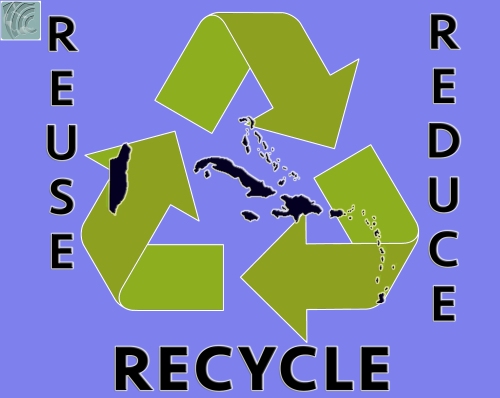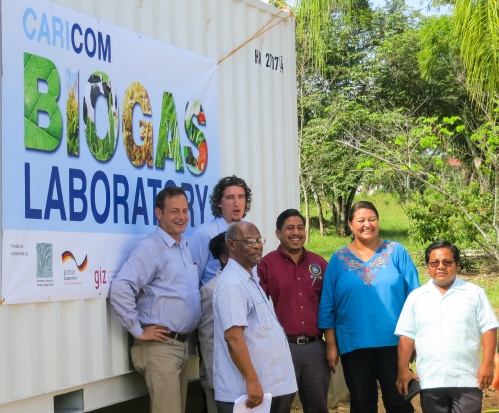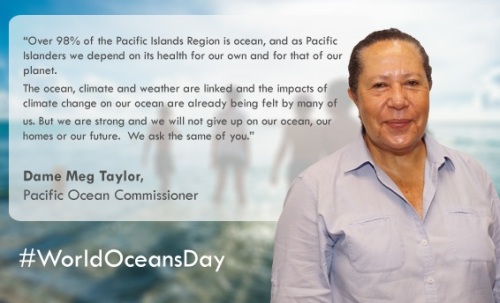#5CsDailyTips

When you break glass in your Caribbean home, what do you do with it? If you throw it in the trash where does it go? Find out if your island or country has a recycling program for glass.
Recycling one ton of glass saves:
42 kWh of energy0.12 barrels (5 gallons) of oil714,286 Btu's of energy2 cubic yards of landfill space7.5 pounds of air pollutants from being released
Glass Recycling Tips
Prepare glass containers for recycling by rinsing out with water.Labels on glass containers do not have to be removed because they are removed during the crushing process and/or burned off during the melting process.Avoid breaking the glass and mixing broken colours together as this may make the glass unacceptable for recycling.
#CariCliMeet #CARICOMClimate #CaribbeanClimate #CaribbeanClimateTips #CARICOMClimateTips #ClimateChange #climateresilience #climatechangeadaptation #climatechangemitigation #environment #LowCarbon



 With irrigation use becoming more widespread in the Caribbean, countries’ fresh-water supplies will become increasingly important. Photo: FAO
With irrigation use becoming more widespread in the Caribbean, countries’ fresh-water supplies will become increasingly important. Photo: FAO 
 CARICOM Biogas Laboratory
CARICOM Biogas Laboratory  RACC project Coordinator Lester Arnold (right) hands over some equipment of Grenada’s Environment Minister Roland Bola (3rd left). Looking on from left are Forestry Officer, Dillon Palmer; Permanent Secretary in the Ministry of Forestry, Marilyn Austin-Cadore, Chief Forestry Officer, Anthony Jeremiah and USAID’s Environmental Specialist, Joth Singh
RACC project Coordinator Lester Arnold (right) hands over some equipment of Grenada’s Environment Minister Roland Bola (3rd left). Looking on from left are Forestry Officer, Dillon Palmer; Permanent Secretary in the Ministry of Forestry, Marilyn Austin-Cadore, Chief Forestry Officer, Anthony Jeremiah and USAID’s Environmental Specialist, Joth Singh  Grenadian student Heidi Stanisclaus (centre) is joined by RRACC Project Coordinator Lester Arnold, USAID’s Natural Resources Specialist Christina Cairns and Environmental Specialist Joth Singh in planting the first of over 100 trees at the Sauteurs Beach
Grenadian student Heidi Stanisclaus (centre) is joined by RRACC Project Coordinator Lester Arnold, USAID’s Natural Resources Specialist Christina Cairns and Environmental Specialist Joth Singh in planting the first of over 100 trees at the Sauteurs Beach 
